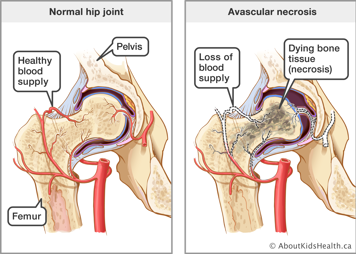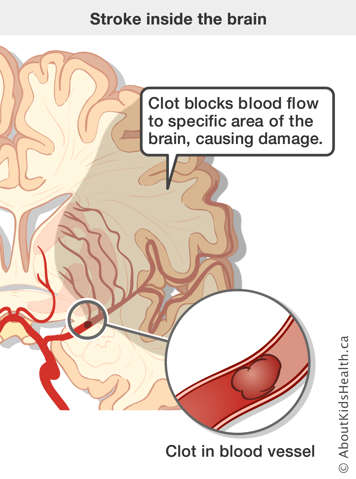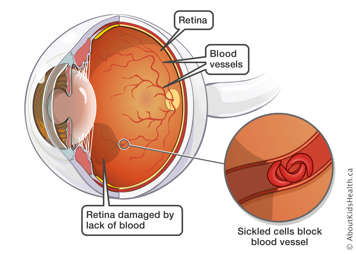Just like sickle cell disease symptoms, complications can vary from one person to another. They may also change over time.
That said, some of the common complications of sickle cell disease include:
Infections
The spleen is an organ in the abdomen that helps protect against infection by filtering bacteria from the blood and producing antibodies.
When someone has sickle cell disease, their spleen does not work properly. This is because its blood vessels have repeatedly been clogged with sickle cells, causing the spleen to shrink over time. As a result, people with sickle cell disease have an increased risk of developing certain types of infections, especially in the blood, bone and central nervous system. Some of these infections can be prevented by vaccination.
One such infection is osteomyelitis, an infection in the bone. In people with sickle cell disease, osteomyelitis occurs when bacteria carried by the blood settle in bone marrow.
Certain types of bacteria, such as salmonella, are more likely to settle in the bone. If left untreated, the infection that follows can damage the bone or spread throughout the body. Symptoms can include fever, swelling, soreness and heat in the affected area.
Acute chest syndrome
Acute chest syndrome is unique to people with sickle cell disease. It is usually caused by sickled cells getting stuck in the lungs. It feels like pneumonia and has one or more of the following symptoms:
- fever
- chest pain
- respiratory symptoms (coughing, wheezing, shortness of breath)
- hypoxemia (reduced oxygen in the blood)
Avascular necrosis
Avascular necrosis occurs when bone tissue dies because of a loss of blood supply (and therefore oxygen). In people with sickle cell disease, avascular necrosis often occurs in the hip joint and the long bones in the arms (humerus) and legs (femur).
This complication can be painful. In fact, it may feel like a pain crisis, but it lasts longer. If avascular necrosis does not heal and the bone becomes permanently damaged, a person may need a joint replacement.

Stroke
Stroke occurs when oxygen to a part of the brain is blocked or reduced. This can occur as a complication of sickle cell disease if sickled cells cause a blockage or damage blood vessels in the brain. Symptoms can include (but are not limited to):
- weakness or numbness in any part of the body
- confusion
- severe headache
- dizziness or problems with balance
- changes in vision and speech
- seizures
If you have any of these symptoms, seek medical attention right away.

Retinopathy
Retinopathy is when the retina (the part of the eye that controls vision) is damaged. It occurs when the very small blood vessels in the eye become blocked by sickled cells.
Over time, retinopathy can damage a person’s eyesight. Medication or surgery may be needed if the condition is severe.

Priapism
Priapism is a painful erection of the penis that lasts for a number of hours. It occurs when blood vessels become blocked and is not related to sexual arousal.
Priapism can begin at a very young age but more often is a problem for teenagers and adults. If it happens a lot or lasts for a long time (over one hour), you should contact your health-care provider or go to your local Emergency Department for treatment. It is important that you talk with your health-care providers if you begin having this complication.
Delayed puberty
Puberty is a time of rapid physical change. Growth and sexual development are more noticeable at this time than at any other period in your life.
Many teens with sickle cell disease experience puberty later than others. The average delay is about two years, although some people may not experience any delay.
It is important to remember that, even if it is late, puberty will still occur.






